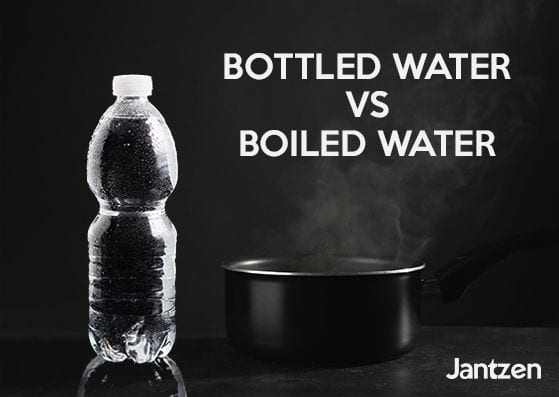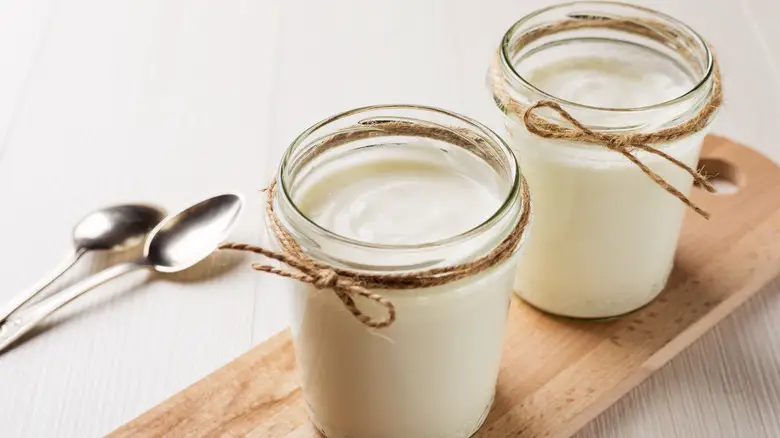Mineral water is known for its high mineral content and numerous health benefits. It contains minerals such as calcium, magnesium, and potassium that are vital for our body’s optimal functioning. However, drinking impure water can lead to various diseases, including diarrhoea, cholera, and typhoid fever. Therefore, it’s crucial to ensure that the water we drink is safe and pure.
Boiling is a popular method of purifying water as it kills bacteria and other microorganisms present in the water. But what happens when we boil mineral water? In this article, we’ll explore whether or not it’s safe to boil mineral water and the effects of boiling on minerals that exist in mineral water.
Boiling Mineral Water – What Actually Happens?
When we boil any form of liquid, the heat energy provided results in breaking up molecular bonds between its atoms. As a result of destabilized molecular bonds within certain compounds present in the liquid, they either escape in form of gases or dissolve once again into liquid upon cooling down. As for still-water (including all non-carbonated bottled waters), boiling helps eliminate disease-causing bacteria from them by killing them off.
Regarding mineral contents of bottled waters though, it’s necessary to figure out how boiling would affect these other valued compounds found within them.
How boiling affects the minerals and nutrients in the water
Most minerals found in bottled mineral water are heat-stable; therefore, they remain unchanged even after boiling. The act only intensifies concentration levels of their quantities on account of evaporation arising – with no actual loss of their nutritive value whatsoever.
However, besides altering taste-quality slightly (more noticeable with sparkling varieties) due to changes in chemical association upon alteration with gases inside them breaking apart (in carbonated forms), some trace elements like nitrates tend to become more concentrated forming harmful nitrites after boiling.
Does boiling mineral water change its taste?
Boiling water changes its taste by altering the chemical bonds which exist within the minerals present in it. Typically, mineral water has a unique flavour due to the presence of minerals such as calcium and magnesium. When we boil it, these minerals re-associate chemically with other elements in the water and can alter how they are perceived by our senses.
It is important to note that the taste of mineral water may not be as pleasant after boiling, but it remains safe to consume for most people.
The Positive Effects of Boiling Mineral Water
Boiling is an effective way of eliminating harmful microorganisms from impure water. It’s one of the best ways to ensure that our drinking water is clean and safe for consumption.
How boiling can remove bacteria from mineral water
When you boil mineral water, the heat energy kills bacteria such as E.coli and salmonella present in it, making it safe for consumption. By boiling your drinking water before drinking, you purify it yourself and eliminate any possibility for illnesses associated with poor hygiene.
Effects of boiling on chemical compounds such as lead, fluoride, and chlorine
Boiling can also help to reduce some forms of pollutants present in bottled waters before consumption – providing a cleaner experience altogether! Chlorine is a common disinfecting compound used to treat municipal supplies. However, excess exposure can cause respiratory problems like asthma. Lead and fluoride exist naturally but excessive amounts have been associated with birth defects or skeletal issues.
With continual heating at elevated temperatures over time (such as many times per week), there could arise problems like PFAS contamination for straight-forwardly boiled groundwater (still brewing research). Limitation would become necessary then for repeated use if further analysis requires attention.
Effect on hard minerals that have precipitated to surfaces — rendering them harmless
Hard-water scale tends usually to accumulate on metallic appliances’ internal faces-after being used for extended durations and often exposes users to multiple risks. Boiling mineral water eliminates almost the complete amount of hard minerals and thereby reduces risk caused by some metallic fluids when exposing them to minimal corrosive products found in bottled waters (Please there may still be residual amounts remaining after boiling).
The Potential Negative Effects of Boiling Mineral Water
While boiling can help in removing harmful bacteria and pollutants, it can also change the chemical composition of mineral water in unexpected ways. It is therefore important that consumers are aware of these potential negative effects when boiling their mineral water.
Is it possible for some PFA’s (perfluoroalkyl) or PFAS (perfluoroalkyl substances) slowly elevated during repetition-boiling?
A growing concern when it comes to boiling water is the potential for PFAs or perfluoroalkyls to become more concentrated over time, especially when heated repeatedly. These compounds are commonly used in consumer goods such as Teflon cookware but can also be present in certain types of bottled water.
The elevated heating temperatures tend to further concentrate them making these potentially carcinogenic compounds safe only under specific regulated usage levels with clinical guidelines.
Can excessive minerals become an issue if heated repeatedly?
Over time, heating minerals with varying nutrient profiles available within could over-concentrate themselves making them toxic on account of their percentage volume continually intensifying upon each boil. Overindulgence or inadequately controlling heating durations thus could lead to imbalances – especially concerning trace element levels like selenium or arsenic (in areas where contamination exists). Practically speaking, consume moderately & meticulously control your periods!
Extensive heating might destroy a few sensitive B-complex vitamins.
Boiling may not harm most vitamins, but studies show that excessive heat may break down sensitive B-vitamins like thiamine and riboflavin over just a few minutes.
Therefore, it is essential to take note of these and not to overheat your water when boiling.
Is Boiled Mineral Water Safe for Everyone to Drink?
Boiled mineral water is generally safe for consumption, but certain groups of people need to take extra precautions. For instance, infants have undeveloped immune systems that may not be strong enough to fight off bacteria in the water. Therefore, it’s best to boil their bottled mineral water before use.
Pregnant women also need to pay close attention as excessive exposure of certain minerals over the long run has been shown associated with some fetal abnormalities and goitrogens that impact on thyroid function too by interfering with iodine utilization.
Consulting trusted healthcare professionals should inform these users better on what steps they can take towards optimal usage.
Tips for Correctly Boiling Mineral Water
When boiling mineral water, its ideal that you read instructions on both the bottle & instructions manual (if any) from producers since some minerals’ stability could affect boiling durations. That said here are a few pointers:
- Use stainless-steel or glass pots instead of plastic ones.
- Ensure that your pot is properly cleaned so avoid anything unsanitary transferring into the drinking-water.
- Adjust temperatures during heat up averaging around 70-80°C for still-water variety while sparkling note extreme controls
- Strain after cooling if required as residue may remain
- Store boiled mineral water in sterilized containers.
- Do not re-boil repeatedly — doing this creates unnecessary risks.
Conclusion
In conclusion, boiling mineral water remains one of the most accessible ways of ensuring that our drinking water is safe and free from harmful bacteria and pollutants. While it does come with potential negative effects such as chemical contamination and loss/breakdowns in vitamins but more studies are still unlocking current uncertainties for continued improvement – further research continues.
Ultimately, convenience vs precautions exist concerning regular use choices: boil eggs without worry or frequent-boil an expected glass of mineral water while accepting unfavorable aftertastes? Weighing the pros and cons becomes necessary, as getting our daily recommended intake shouldn’t pose a risk!
Q&A
- Q: Can I boil mineral water without damaging its natural composition? A: Yes, boiling mineral water is safe and won’t alter its essence as long as it’s kept under the recommended temperature of 212°F (100°C). However, it’s advisable to check the label for specific instructions.
- Q: Is there any health risk involved in boiling mineral water? A: No, boiling mineral water poses no significant health hazard provided that you are using a clean and hygienic utensil or container to heat it up. Nevertheless, if you’re not sure about the purity of your water source, consult a professional before consuming it.
- Q: Does boiling mineral water affect its mineral content? A: Boiling mineral water can cause some minerals to evaporate since high temperatures can disrupt the natural balance of trace elements. Consequently, it may slightly alter its taste or odor depending on the type and quantity of minerals present in your particular brand.
- Q: Is boiling mineral water the best way to purify it? A: Although boiling can reduce most bacteria and other microorganisms present in drinking water, this method might not eliminate all harmful substances such as heavy metals or chemicals. For better results, we recommend using a certified filtration system or purchasing commercially purified water from reputable brands.





